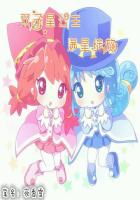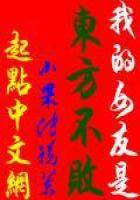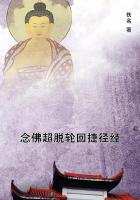THE SERFS
The Rural Population in Ancient Times--The Peasantry in the Eighteenth Century--How Was This Change Effected?--The Common Explanation Inaccurate--Serfage the Result of Permanent Economic and Political Causes--Origin of the Adscriptio Glebae--Its Consequences--Serf Insurrection--Turning-point in the History of Serfage--Serfage in Russia and in Western Europe--State Peasants--
Numbers and Geographical Distribution of the Serf Population--Serf Dues--Legal and Actual Power of the Proprietors--The Serfs' Means of Defence--Fugitives--Domestic Serfs--Strange Advertisements in the Moscow Gazette--Moral Influence of Serfage.
Before proceeding to describe the Emancipation, it may be well to explain briefly how the Russian peasants became serfs, and what serfage in Russia really was.
In the earliest period of Russian history the rural population was composed of three distinct classes. At the bottom of the scale stood the slaves, who were very numerous. Their numbers were continually augmented by prisoners of war, by freemen who voluntarily sold themselves as slaves, by insolvent debtors, and by certain categories of criminals. Immediately above the slaves were the free agricultural labourers, who had no permanent domicile, but wandered about the country and settled temporarily where they happened to find work and satisfactory remuneration. In the third place, distinct from these two classes, and in some respects higher in the social scale, were the peasants properly so called.*
My chief authority for the early history of the peasantry has been Belaef, "Krestyanye na Rusi," Moscow, 1860; a most able and conscientious work.
These peasants proper, who may be roughly described as small farmers or cottiers, were distinguished from the free agricultural labourers in two respects: they were possessors of land in property or usufruct, and they were members of a rural Commune. The Communes were free primitive corporations which elected their office-bearers from among the heads of families, and sent delegates to act as judges or assessors in the Prince's Court. Some of the Communes possessed land of their own, whilst others were settled on the estates of the landed proprietors or on the extensive domains of the monasteries. In the latter case the peasant paid a fixed yearly rent in money, in produce, or in labour, according to the terms of his contract with the proprietor or the monastery; but he did not thereby sacrifice in any way his personal liberty. As soon as he had fulfilled the engagements stipulated in the contract and had settled accounts with the owner of the land, he was free to change his domicile as he pleased.
If we turn now from these early times to the eighteenth century, we find that the position of the rural population has entirely changed in the interval. The distinction between slaves, agricultural labourers, and peasants has completely disappeared. All three categories have melted together into a common class, called serfs, who are regarded as the property of the landed proprietors or of the State. "The proprietors sell their peasants and domestic servants not even in families, but one by one, like cattle, as is done nowhere else in the whole world, from which practice there is not a little wailing." And yet the Government, whilst professing to regret the existence of the practice, takes no energetic measures to prevent it. On the contrary, it deprives the serfs of all legal protection, and expressly commands that if any serf shall dare to present a petition against his master, he shall be punished with the knout and transported for life to the mines of Nertchinsk.
(Ukaz of August 22d, 1767.**)
These words are taken from an Imperial ukaz of April 15th, 1721.
Polnoye Sobranye Zakonov, No. 3,770.
*This is an ukaz of the liberal and tolerant Catherine! How she reconciled it with her respect and admiration for Beccaria's humane views on criminal law she does not explain.
How did this important change take place, and how is it to be explained?
If we ask any educated Russian who has never specially occupied himself with historical investigations regarding the origin of serfage in Russia, he will probably reply somewhat in this fashion:
"In Russia slavery has never existed (!), and even serfage in the West-European sense has never been recognised by law! In ancient times the rural population was completely free, and every peasant might change his domicile on St. George's Day--that is to say, at the end of the agricultural year. This right of migration was abolished by Tsar Boris Godunof--who, by the way, was half a Tartar and more than half a usurper--and herein lies the essence of serfage in the Russian sense. The peasants have never been the property of the landed proprietors, but have always been personally free; and the only legal restriction on their liberty was that they were not allowed to change their domicile without the permission of the proprietor. If so-called serfs were sometimes sold, the practice was simply an abuse not justified by legislation."
This simple explanation, in which may be detected a note of patriotic pride, is almost universally accepted in Russia; but it contains, like most popular conceptions of the distant past, a curious mixture of fact and fiction. Serious historical investigation tends to show that the power of the proprietors over the peasants came into existence, not suddenly, as the result of an ukaz, but gradually, as a consequence of permanent economic and political causes, and that Boris Godunof was not more to blame than many of his predecessors and successors.*
See especially Pobedonostsef, in the Russki Vestnik, 1858, No.
11, and "Istoritcheskiya izsledovaniya i statyi" (St. Petersburg, 1876), by the same author; also Pogodin, in the Russkaya Beseda, 1858, No. 4.















